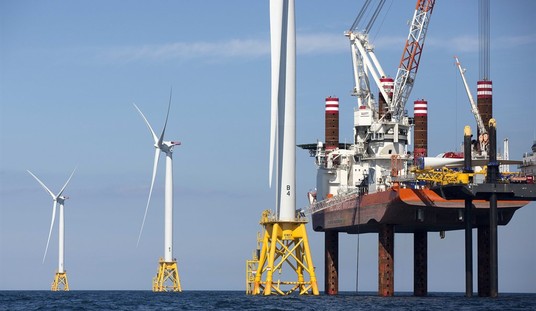A friend of mine who operates a small chain of franchised eateries once told me that saying a higher minimum wage creates more jobs is akin to throwing an anchor to a drowning man because it would really incentivize him to dog paddle faster. While that seems to be common sense whether you’re an employer or an economist, no amount of rational explanation seems to dissuade the Democrats when they get up on their populist horse and begin promising the masses of lower income workers some extra cash. To be fair, it’s not a bad tactic if you’re trying to drum up votes because people love “free” stuff and unfortunately there are far too many voters who don’t want to see the big picture and how it could negatively impact them.
There’s an excellent piece at the Wall Street Journal this week from economist David Neumark in which he explains that the data has been piling up for some time now and the arguments made by the Fight for Fifteen crowd simply don’t hold water in the cold light of day. (Emphasis added)
Economists point to a crucial question: Will a higher minimum wage reduce the number of jobs for the country’s least skilled workers? President Obama says “there is no solid evidence that a higher minimum wage costs jobs.” On the contrary, a full and fair reading of the evidence shows the opposite. Raising the minimum wage will cost jobs, particularly those held by the least-skilled.
Economists have written scores of papers on the topic dating back 100 years, and the vast majority of these studies point to job losses for the least-skilled. They are based on fundamental economic reasoning—that when you raise the price of something, in this case labor, less of it will be demanded, or in this case hired.
Among the many studies supporting this conclusion is one completed earlier this year by Texas A&M’s Jonathan Meer and MIT’s Jeremy West, which reaffirmed that “the minimum wage reduces job growth over a period of several years” and that “industries that tend to have a higher concentration of low-wage jobs show more deleterious effects on job growth from higher minimum wages.”
Much of this falls back on the law of supply and demand, just to put it in terms that most of us can wrap our heads around. When you drive up the price of cars fewer people will buy cars. When you drive up the cost of labor, fewer workers will be hired and employers will seek opportunities to streamline operations or automate. (The cost of automation becomes far more doable as labor costs rise.) So how do some of the Democrats’ pet analysts keep getting this wrong? I was directed to the WSJ piece by Don Boudreaux, who points out that there’s a big difference between actual economists and econometricians.
Among the reasons for the excellence of Neumark’s work is that he is, in addition to being a master econometrician, also an excellent economist. These two disciplines (econometrics and economics), while complementary to each other, are emphatically not the same. Much of what’s wrong with modern-day economics is that people who master econometrics (in part because their degrees are said to be in “economics”) mistake their knowledge of econometrics for knowledge of economics – despite the fact that many of these econometricians know precious little economics. And no amount of mastery of econometrics can compensate for ignorance of economics.
There’s arguably something to that comparison, sticking to the general theme of staying in one’s own lane. But I would suggest that the real reason goes a bit further. You can take any theory and cherry pick a couple of statistics to hang on it and make your argument if you really, really want it to be true badly enough. Liberals have a need to believe that jacking up the minimum wage won’t cause job losses because it’s become part and parcel of their overall bread and circuses strategy of winning elections. It’s really no different than the climate studies question we’ve talked about here recently. Even if the numbers indicate that there’s been a pause in the planet’s warming trends, you can eventually massage the data enough to come up with one set of numbers which supports your claim. At that point you just cling to them for dear life and charge forward.
Unfortunately for most of the lower income workers, they’re only going to find out how badly this minimum wage theory is constructed when a couple of them get a nice raise but the rest are cut loose to the unemployment lines and they can no longer afford to buy what they need because the prices of everything have gone up. Reality is a harsh teacher.









Join the conversation as a VIP Member